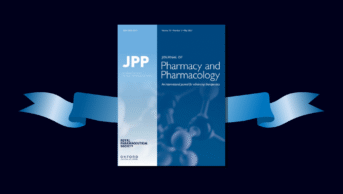July signals the end of the school year, the potential for hotter weather and, if possible, even a trip to the seaside. Of course, for those with young children, the break from school also necessitates some advance planning around childcare. If you can work from home, perhaps the children will stay around as you juggle work while caring for them. For our household, even though the children are now much older, the home dynamics during these summer months are also a reminder of lockdowns and the imposition to all be together. The COVID-19 pandemic — that seismic event in our immediate past — perhaps still defines many people’s lives and will remain a point of reference for some time, or some might hurry to forget it all. Certainly, in terms of research, it is important to note and learn from scientific work conducted in, and about, the pandemic. It is with these thoughts in mind that I read three distinct articles this month, all focused on research concerning the COVID-19 pandemic.
The first, published in the Journal of Pharmaceutical Health Services Research (JPHSR), reports on the impact of polypharmacy medication reviews on deprescribing, when supported by accompanying educational workshops, conducted online during the pandemic and focused on rural areas in Canada. A before-and-after study, the authors developed online educational sessions and delivered these to healthcare professionals working within targeted communities. Then, what were described as ‘team-based medication reviews’ were completed, with patients prescribed five or more medications in the prior six months, while actively involving them in the decision-making process (intervention group). As well as looking for a reduction in prescribed medications in the three months following each online medication review, compared with the three-month period beforehand, the authors made comparisons with two control groups; these comprised, first, standard medication reviews completed outside of the study location and, second, individuals who had not received a medication review in the previous 365 days.
Often authors end up making hard decisions about what to include in scientific reports on their research and this can leave the reader wanting to know more. Personally, I was interested to know more about the recruitment of community pharmacists to the study, the uptake of the training offered, the success rate for recruitment of patients, and some prospective calculation of the sample size for achieving statistical significance.
This, however, does not diminish the findings of the study, which were that patients who received an online medication review in the intervention group were significantly more likely to have a medication deprescribed compared with both control groups. Conceptualised using relative terms, those in the intervention group were 20% more likely to have at least one medication deprescribed compared with someone who had received a medication review in the first control group (adjusted odds ratio: 1.20; 95% confidence interval [CI]: 1.03 to 1.39); and this increased to 42% when compared with those in the second control group, who had received no medication review at all (adjusted odds ratio: 1.42; 95% CI: 1.25 to 1.61). The pandemic might have decreased the opportunity for face-to-face discussions between healthcare professionals and patients, but this paper shows how online sources could be used both to train healthcare professionals and engage with patients via alternative means.

The second paper, published in the International Journal of Pharmacy Practice, took place in Australia and used qualitative methodology to explore the community pharmacy experience during the pandemic. The authors used interviews to examine the experiences and perspectives of Australian community pharmacists to delineate the impact of the first lockdown on their duties, interactions with patients, coping practices and own mental wellbeing. This paper is important because it adds to the body of knowledge on this topic. We must surely document and share the particular struggles that pharmacists faced during those difficult times if we are ever to push for change. I find qualitative papers a delight to read and encourage readers to access the paper and experience the rich descriptions and examples provided first hand. There are a couple of findings worth highlighting here: first, that pharmacists described a great number of challenges and felt unsupported and not sufficiently understood by those they served, and second, that the impact of the pandemic on the mental wellbeing of the pharmacists was significant, with some even reconsidering their careers as a result. The pandemic might be subsiding for now, but the findings of this paper surely cannot be overlooked if we are to care for the future of the pharmacy workforce.
The third and final paper that I would like to draw attention to this month is also published in JPHSR and follows the theme of mental health and COVID-19, but with an entirely different focus. The authors of this US-based study conducted a retrospective analysis of the records of more than 230,000 patients hospitalised with COVID-19, with the aim of examining the impact of taking a selective serotonin reuptake inhibitor (SSRI) — a class of antidepressants — on the risk of death. Perhaps an astonishing finding to those unfamiliar with the concept was that taking any SSRI in this cohort was associated with a 30% reduction in the relative risk of death (Relative risk: 0.70, 95% CI: 0.67–0.73; adjusted P-value <0.001). This is not a stand-alone result and follows on from previous observations, which indicate the involvement of the acid sphingomyelinase/ceramide system in COVID-19. What might reasonably be pursued as a result of such studies is further investigation of the therapeutic potential of SSRIs in COVID-19 in prospective trials.
A phrase associated with the idea that something should not be forgotten is ‘lest we forget’. It is used nowadays when remembering wars, and comes from the poem ‘Recessional’ by Rudyard Kipling, written in 1897. In my opinion, painful as the memories might be, the pandemic too must not be forgotten and research relating to that time ought to be highlighted, so that we not only remember, but build on what we know.
Parastou Donyai is chief scientist at the Royal Pharmaceutical Society



